Introduction: Who Is the Awujale of Ijebu?
The Awujale of Ijebu is more than a traditional ruler, he is the spiritual anchor, cultural custodian, and political voice of the Ijebu Kingdom, a prominent Yoruba sub-group in southwestern Nigeria.
The title “Awujale” dates back centuries and has come to symbolize continuity, wisdom, and unity among the Ijebu people.
Until his passing in July 2025, Oba Sikiru Kayode Adetona, Ogbagba II, held the title for an unprecedented 65 years, making him one of the longest-reigning monarchs in Nigerian history.
His reign was marked by modernization, cultural preservation, and outspoken leadership that elevated the status of Ijebuland both nationally and internationally.
This article delves into the origins, functions, and legacy of the Awujale, with a special focus on Oba Adetona’s transformative reign.
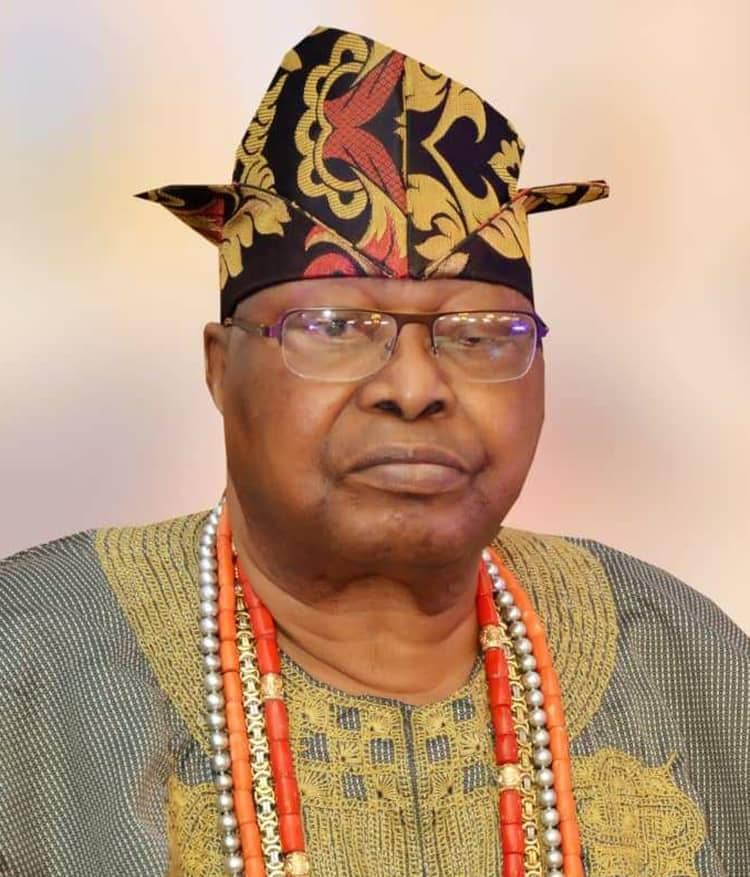
Historical Origins of the Awujale Title
The Ijebu Kingdom traces its roots to ancient Yoruba civilization, with oral traditions linking its founders to Oduduwa, the progenitor of the Yoruba people.
The title “Awujale” is believed to have evolved from “Amujale,” meaning “one who summons support from the underground”, a reference to mystical powers attributed to early rulers like Olu-Iwa, who led the migration to Ijebu-Ode.
The first recognized Awujale, Obanta, arrived from Ile-Ife around 1430 and established the monarchy.
Since then, the title has passed through various ruling houses, including:
Anikinaiya
Gbelegbuwa
Fusengbuwa
Fidipote
Each house takes turns presenting candidates for the throne, following the Chiefs Law of 1957, which governs traditional leadership succession in Ogun State.
The Role of the Awujale in Ijebu Society
The Awujale serves as:
Spiritual leader: Presiding over traditional rites and festivals like Ojude Oba
Cultural guardian: Preserving customs, language, and heritage
Political influencer: Advising government leaders and representing Ijebu interests
Unifier: Bridging religious, ethnic, and generational divides
Unlike many ceremonial monarchs, the Awujale of Ijebu wields considerable influence, often consulted on national matters and revered across Yoruba land.
The Reign of Oba Sikiru Kayode Adetona (1960–2025)
Born on May 10, 1934, in Imupa, Ijebu-Ode, Oba Adetona hailed from the Anikinaiya Ruling House.
He studied accountancy in the United Kingdom and was crowned Awujale on April 2, 1960, at just 26 years old.
Key Milestones:
Longest-reigning monarch in Nigeria (65 years)
Revival of Regberegbe (age-grade system) for community development
Modernization of the palace and elevation of Ijebu Obas
Establishment of governance institutes, including the Oba Sikiru Adetona Institute for Governance Studies
Promotion of Ojude Oba Festival into a global cultural event
Oba Adetona was known for his outspokenness, integrity, and philosophical depth, often described as a “social scientist in royal robes.”
Ojude Oba: The Crown Jewel of Ijebu Culture
One of the Awujale’s most enduring legacies is the Ojude Oba Festival, held annually two days after Eid-el-Kabir.
Originally a Muslim homage to the king, it has evolved into a pan-Ijebu celebration of unity, heritage, and pageantry.
Festival Highlights:
Age-grade parades in coordinated regalia
Horseback processions by nobles and dignitaries
Cultural performances and traditional music
Homage to the Awujale at the palace
Under Oba Adetona, Ojude Oba became a tourism magnet, drawing thousands of visitors and showcasing the richness of Yoruba culture.
Awujale of Ijebu’s Governance and Advocacy
Oba Adetona was not just a cultural figure, he was a statesman. He served as:
Member of the Western Region House of Chiefs
Minister and Commissioner during the 1962 political crisis
Chancellor of Federal University of Technology, Yola
Patron of various civic and religious organizations
He was a vocal advocate for:
Ijebu State creation
Good governance and accountability
Youth empowerment and education
His endowment of a Professorial Chair in Governance at Olabisi Onabanjo University reflects his commitment to intellectual leadership.
The Awujale Palace: A Monument of Prestige
The Awujale Palace Complex in Ijebu-Ode is a symbol of royal grandeur and cultural pride. Commissioned in 1995, it features:
Modern architecture blended with traditional motifs
Reception halls for dignitaries and festivals
A museum of Ijebu history and artifacts
The palace serves as the ceremonial and administrative hub of Ijebuland, hosting events, mediating disputes, and preserving royal archives.
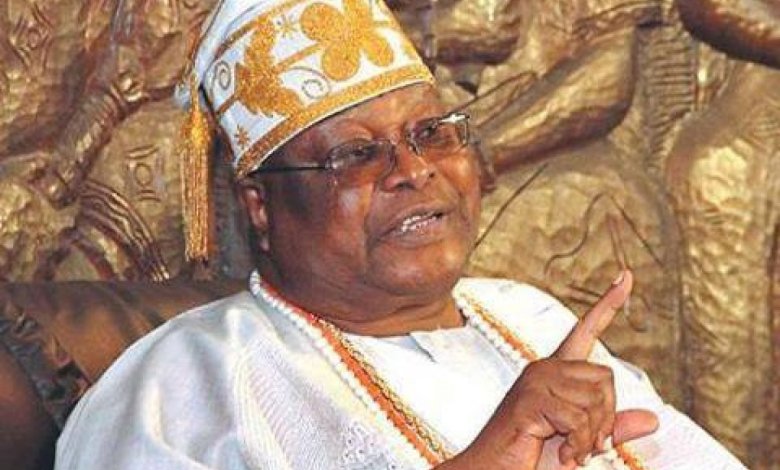
Succession and Ruling Houses
The Awujale title rotates among four ruling houses:
Anikinaiya
Gbelegbuwa
Fusengbuwa
Fidipote
Succession follows a rigorous process:
Nomination by the ruling house
Selection by Ijebu kingmakers
Approval by the Ogun State Government
Traditional rites and seclusion
Coronation ceremony at Itoro Square
With Oba Adetona’s passing in July 2025, the next Awujale will be chosen from the Gbelegbuwa House, continuing the cycle of royal stewardship.
National and Global Recognition
Oba Adetona’s reign brought Ijebuland into global focus. He received:
National honors for service and leadership
International visitors, including Queen Elizabeth II
Recognition from UNESCO for cultural preservation
His autobiography, Awujale: The Autobiography of Alaiyeluwa Oba S.K. Adetona, offers rare insights into traditional leadership and modern governance.
Death and Legacy
Oba Sikiru Kayode Adetona passed away on July 13, 2025, at the age of 91, just hours after the death of his longtime friend, President Muhammadu Buhari.
His burial at Ogbagba Court, Igbeba, was attended by dignitaries, traditional rulers, and thousands of mourners.
His legacy includes:
Cultural renaissance in Ijebuland
Educational endowments
Peaceful coexistence among diverse communities
Modernization of traditional institutions
He is remembered as a colossus of Yoruba royalty, whose reign bridged the ancient and the modern.
Conclusion: The Awujale as a Symbol of Continuity
The Awujale of Ijebu is not just a title, it is a living institution that embodies the soul of a people.
From Obanta to Adetona, the throne has weathered wars, colonialism, and modernization, yet remains a beacon of identity and pride.
As Ijebuland prepares to crown a new Awujale, the legacy of Oba Adetona serves as both a blueprint and a challenge: to lead with wisdom, preserve with courage, and unite with love.
The crown may change heads, but the spirit of the Awujale of Ijebu endures.
Frequently Asked Questions
Q. What does the title “Awujale of Ijebu” mean?
The title Awujale refers to the paramount traditional ruler of the Ijebu Kingdom, a prominent Yoruba sub-group in southwestern Nigeria. It symbolizes leadership, spiritual authority, and cultural stewardship over Ijebuland.
Q. Who was the longest-reigning Awujale of Ijebu?
Oba Sikiru Kayode Adetona, Ogbagba II, reigned from April 2, 1960, to July 13, 2025, making him the longest-serving monarch in Nigerian history. His 65-year reign was marked by modernization, advocacy, and cultural revival.
Q. How is a new Awujale selected?
Succession follows a rotational system among four ruling houses: Anikinaiya, Gbelegbuwa, Fusengbuwa, and Fidipote. Candidates are nominated by their house, vetted by kingmakers, and approved by the Ogun State Government before undergoing traditional rites and coronation.
Q. What is the significance of the Ojude Oba Festival?
The Ojude Oba Festival is an annual cultural celebration held two days after Eid-el-Kabir. It honors the Awujale and showcases Ijebu heritage through age-grade parades, horseback displays, and traditional music, attracting thousands of visitors from around the world.
Q. Where is the Awujale of Ijebu’s palace located?
The Awujale Palace Complex is situated in Ijebu-Ode, Ogun State. Commissioned in 1995, it blends modern architecture with traditional design and serves as the ceremonial and administrative center of Ijebuland.
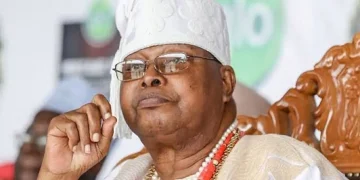














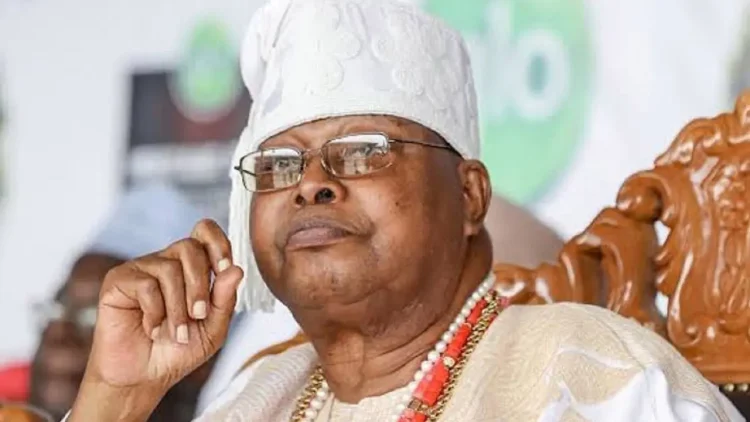









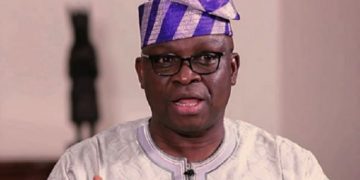





Comments 1